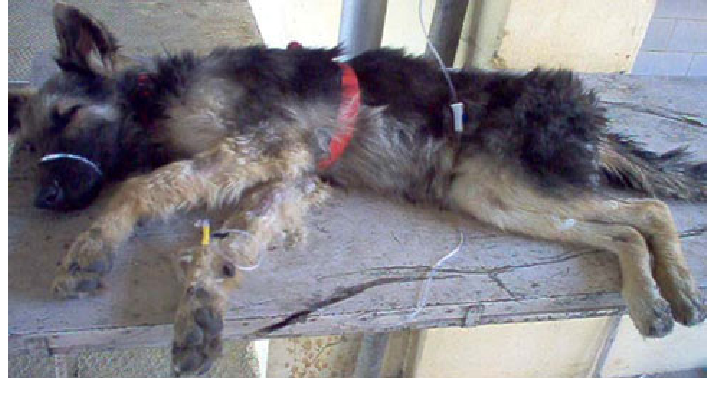Canine parvovirus infection: symptoms and treatment
Canine parvovirus or is a viral disease that mainly affects puppies, although it can affect any type of dog even if vaccinated, many dogs have been victims of this highly contagious and deadly disease.
- Many times.
- And due to lack of knowledge.
- Some owners confuse the symptoms of parvo.
- Resulting in a misdiagnosis.
- For this reason.
- If you are a happy owner of a dog.
- We recommend that you continue reading this article of Animal Expert to learn more about canine parvovirus.
- Your symptoms and your treatment.
Canine parvovirus was identified in 1978, since then, the initial strain has been genetically varied causing different manifestations of the virus that make it difficult to detect.
It is a disease that mainly affects the intestines of all kinds of members of the Canidae family such as dogs, wolves, coyotes, etc. Resistant to physical and chemical factors, it has a very high survival rate in the environment. Rapidly replicating cells such as intestinal, immune or fetal tissue. In the most severe cases, it can attack the heart muscle and lead to sudden death.
As mentioned above, parvovirus has a preference for genetic mutation, but detection of this dreaded virus is always possible through symptoms, one of which will always develop:
When it comes to one or more of these symptoms, we recommend that you see your trusted veterinarian as soon as possible to examine your pet.
It is very common to attack puppies under 6 months or adults without being vaccinated or dewormed, so we highlight the importance of regular visits to the veterinarian.
Although there are breeds more vulnerable to this type of virus such as the German shepherd, the doberman, pit bull or rottweiler, there are also factors that can make your dog more vulnerable to the contraction of the virus such as stress, intestinal parasites or the accumulation of dogs in the same place.
The virus evolves at breakneck rate and can even remain in the same place for months and be transmitted orally through food, breast milk, faeces or infected objects such as shoes.Some insects or rodents may be hosts of parvovirus.
Parvovirus is not transmitted to humans
If you think there are parvovirus-infected dogs near you and you fear for your dog’s safety, we recommend that you follow some tips to avoid it as follows:
If your dog has actually been infected with the virus, take it to the veterinarian as soon as possible to analyze the situation and diagnose the disease, treatment will begin as soon as possible and its main goals are to combat symptoms such as dehydration., electrolytic imbalance, control of vomiting and diarrhoea, etc.
There is no 100% effective treatment to combat parvovirus, veterinarians follow a number of treatments that in some cases give good results, these are some of the steps that follow:
If you don’t want your dog to stay in the hospital, your veterinarian can explain the right dosages and you can do it with intravenous bags, keep in mind that your dog can’t be in contact with other dogs as this could infect them.You should consult your veterinarian to monitor the progression and development of the disease in the patient.
To properly remove traces of viruses in the environment, you should use bleach and a mixture of ammonia and chlorine.We recommend that you dispose of all utensils, including the bed, food containers and toys, you need to replace them with new ones and clean the Entire environment, including the house and terrace or balcony.
If you want to adopt a new canine member, wait at least 6 months before taking it home.The Parvo virus is very resistant and can last a long time in the middle, even after cleaning the area in question.During this waiting time, look for find out which products are removing traces in pet stores or at the veterinary clinic.It is very important to seek professional advice before including another dog in your life, remember that what is at stake is your health.
If your dog has been diagnosed with parvovirus, it’s important to know which type of food is best for faster and more comfortable recovery, so here are some tips:
Once the dog has regained health and as long as your veterinarian tells you to, they can give you the usual meal again.
This article is for information only, on Animal Expert.com.br we are not able to prescribe veterinary treatments or perform any type of diagnosis.We suggest that you take your pet to the vet in case of any type of condition or discomfort.
If you would like to read articles similar to, we recommend that you visit our Viral Diseases section.

